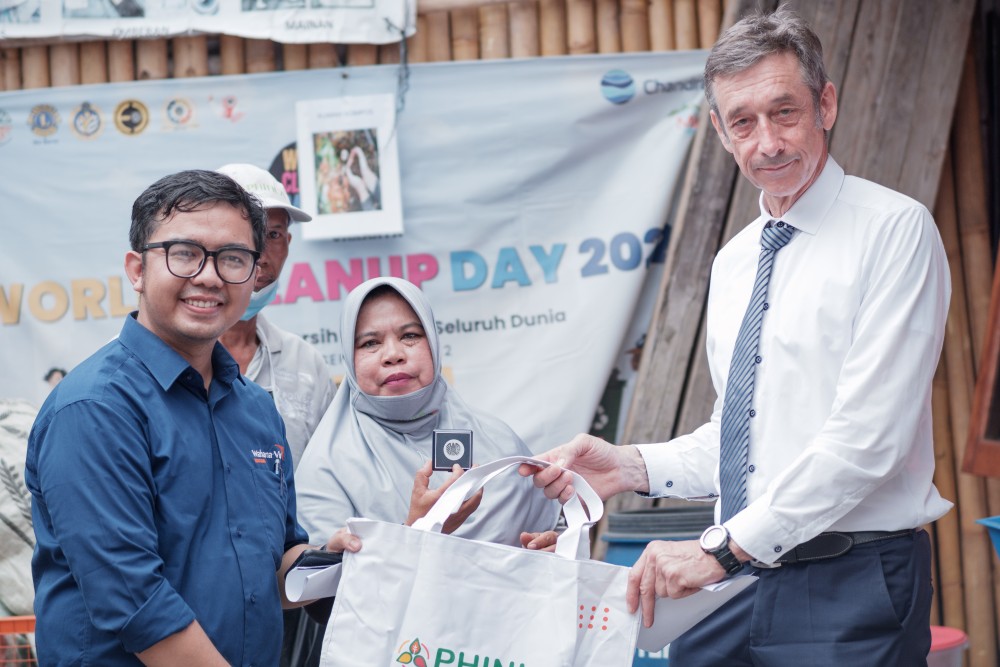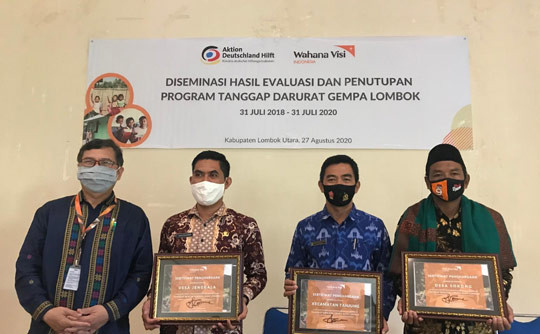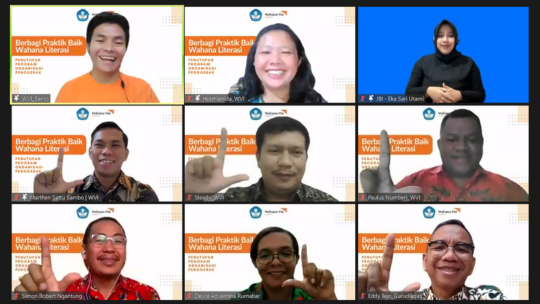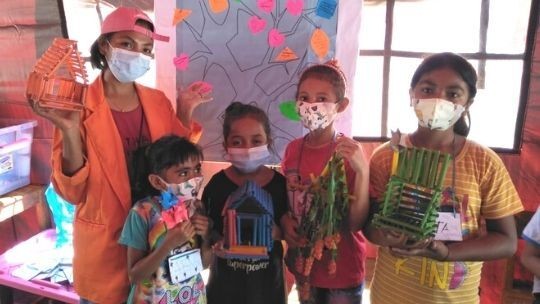Visit of German parliament to Kenanga Waste Bank

The Kenanga Waste Bank had the opportunity to receive a visit from 6 members of the German parliament on October 2022.
The parliamentarians visited to see firsthand the program approach to developing the Waste Bank combined with the savings and loan cooperative or ASKA and the children's study group conducted by Mrs. Nurpiah, the head of the Waste Bank, and her friends. They hope that this program can be a model for Waste Banks in other places.
Kenanga Waste Bank is one of the waste banks assisted by Wahana Visi Indonesia and Divers Clean Action through the Phinla program which is supported by German government funding (BMZ). The Kenanga Waste Bank located in North Jakarta received an award as the "Best Waste Bank in 2022 from the DKI Jakarta Provincial Government.
The Kenanga Waste Bank was inactive during the COVID-19 pandemic. Assisted by WVI, they were trained in bank waste management, business development, building behavior change groups, and door-to-door education. PHINLA also helped initiate the formation of 2 savings and loan groups that aim to provide financial access to all of its members. Members of the Kenanga Waste Bank also benefit greatly because they can borrow at low-interest rates. Currently, the Kenanga Waste Bank has 263 members and has continued to grow since 2021. The volume of waste managed is around 1,400 kilos/month and is expected to continue to grow.
The Kenanga Waste Bank also uses its facility space as an education center for preschool children on the topic of Solid Waste Management (SWM). This preschool class is attended by 10-15 children at each meeting. Children will bring recyclable materials to each meeting, which will be added to their personal waste bank account, and can be used to pay tuition fees.
ABOUT PHINLA
PHINLA (PHilippines, INdonesia, and sri LAnka) project is a Global Program to develop livelihood for poverty-affected populations through a multi-sectoral established and monitored waste management system. PHINLA project is supported by German Federal Ministry for Economic Cooperation and Development (BMZ)



